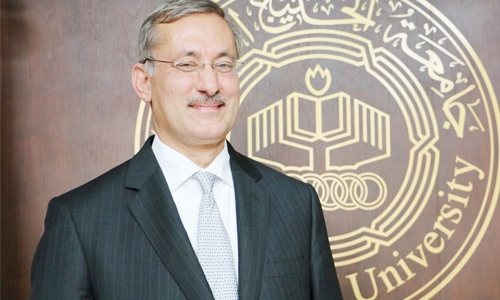Frugal innovation: Technology policy for GCC
Innovation constitutes one of the 2030 Sustainable Development Goals (SDGs), where Goal 9 calls to build resilient infrastructure, promote sustainable industrialization and foster innovation. In a globalized market economy, innovation for emerging markets like GCC, India, China and Africa merits a strategy to enhance marketing and organizational innovative capabilities. Doing more with less resources is the concept that underpins frugal innovation. Frugal innovation is referred to as jugaad which means never giving up. Relying on frugal innovations in product, process, and marketing offers new business model and strategy for open and user-driven innovations. This form of bottom-up innovation is defined in terms of high value to customers and efficient use of natural resources. The term “frugal innovation” has been used to address sustainability in terms of economic, social and ecological dimensions.
At the global arena, firms who adopted frugal innovations were able to cope with the era of austerity after 2008. Frugal firms were able to co-develop products and services that are affordable, sustainable and high quality. For example, the auto industry in India, Tata, developed low-cost cars for public use. In telecom, the Chinese firm, Huawei, succeeded in entering new markets and achieved a target sale of smartphones at about 20 percent of the cost of global competitors. Moreover, Uber and Airbnb allow users to access services like transport and accommodation through harnessing ICT platforms to promote the concept of networked and sharing economy. Siemens set a target by 2030 to double its revenue and reduce its ecological footprint by 50%. The key message in business strategy is that resource scarcity can be a source of radical innovation that create profit and value of smart products which has a global market of about 200 billion.
In GCC and Bahrain in particular, innovations across the water-energy-food nexus may include frugal innovations which include a set of green and smart technologies to mitigate climate change, such as, water desalination, green transport and construction, aqua culture, and eco-agriculture. Also, developing soilless agriculture technology, greywater technology for buildings, or solar energy for water desalination offer new value proposition for sustainable and frugal innovation. The adoption of frugal innovations are intended to develop community-based, low-cost and appropriate technology.
Moreover, value creation is attained through users who are familiar with the concept of Do-It-Yourself (DIY). In essence, community participation is key for engaging in collaborative innovation processes to generate greater value with fewer resources. This is evident in the spread of Wikipedia or Open Source software development which is fueled by global collaborative innovative networks. The crowd-sourcing of ideas through on-line competitions and awards help enrich the cross-fertilization of ideas from community at large.
In sum, rooting the mind set and culture of frugal innovations is to be embedded in an ecosystem of innovation through business clusters, national innovation system, and sectoral innovation system so as to be able to achieve cost efficiency without compromising quality
Prof. Odeh Al-Jayyousi, Head of Innovation and Technology Management, Arabian Gulf University, Bahrain,
E-mail: odehaj@agu.edu
Related Posts

